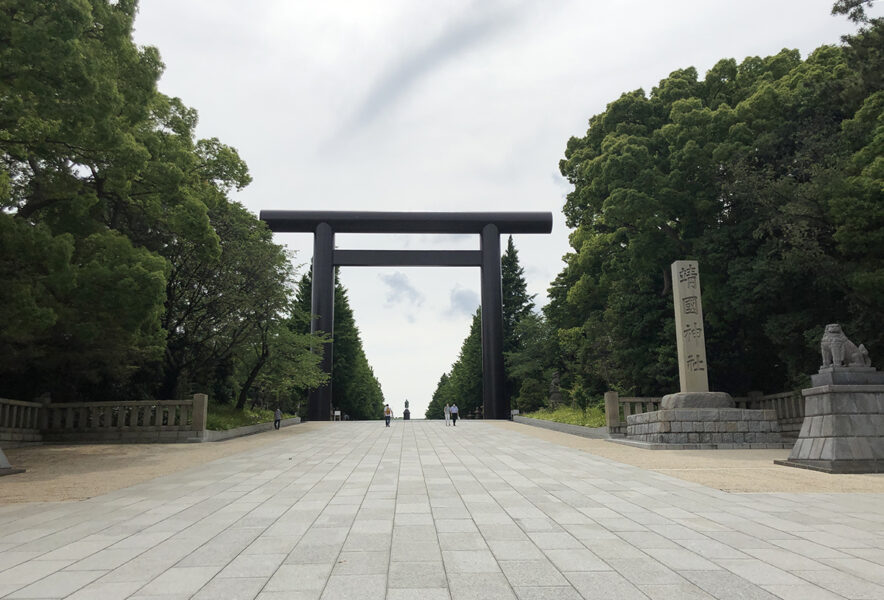Yasukuni Shrine, located in Tokyo’s Chiyoda Ward, is a shrine dedicated to the spirits of the war dead of World War II as well as those who fought at the end of the Tokugawa Shogunate. In spring, many visitors come to Yasukuni Shrine to enjoy the cherry blossoms.
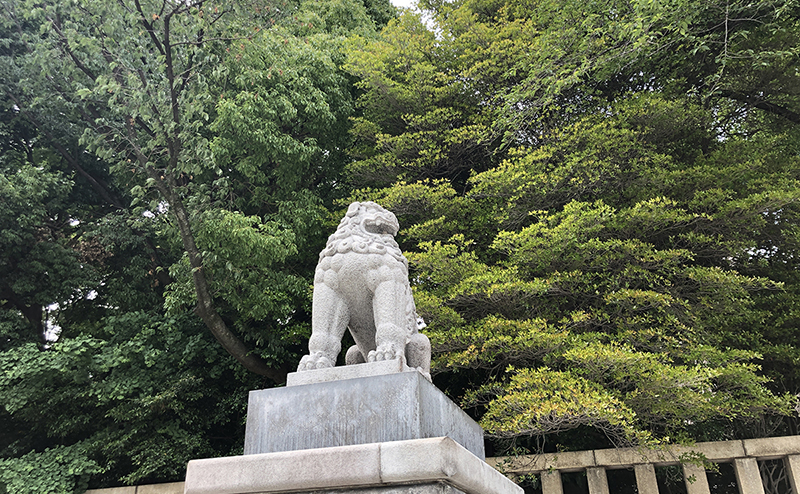
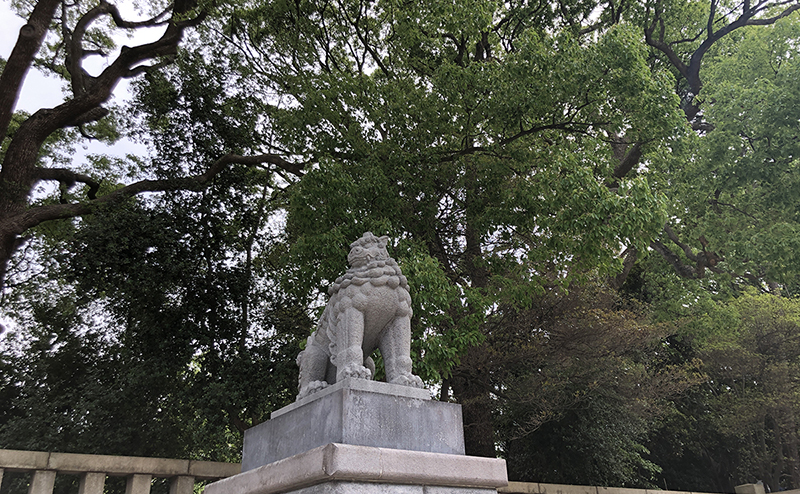
History
Yasukuni Shrine was founded during the Meiji Restoration period, when Japan was about to undergo a major transformation as a modern nation.
Until then, the Tokugawa Shogunate had strictly restricted exchange with foreign countries for about 250 years under a policy of national seclusion. As Western countries began to demand that Japan open its borders to the rest of the world, the conflict between those in favor of opening the country to the outside world and those in favor of seclusion intensified within Japan, leading to great turmoil. The Tokugawa Shogunate, having lost the power to overcome such a critical situation, finally returned power to the Emperor.
Japan was now on its way to becoming a modern nation with the emperor at its center.
This great change caused the Boshin War, which resulted in the loss of many precious lives that had been devoted to the building of a modern nation. Therefore, in June of the 2nd year of Meiji, Emperor Meiji established Shokonsha, the predecessor of Yasukuni Shrine, in order to pass down to posterity the names of those who sacrificed their lives for the nation and to comfort their souls.
The shrine was renamed Yasukuni Shrine on June 4, 1879 (Meiji 12). The shrine name “Yasukuni”, named by Emperor Meiji, means “Yasukuni (peace) to the nation”, and the Yasukuni Shrine expresses the wish to “restore peace to the nation” and “build a peaceful nation”.
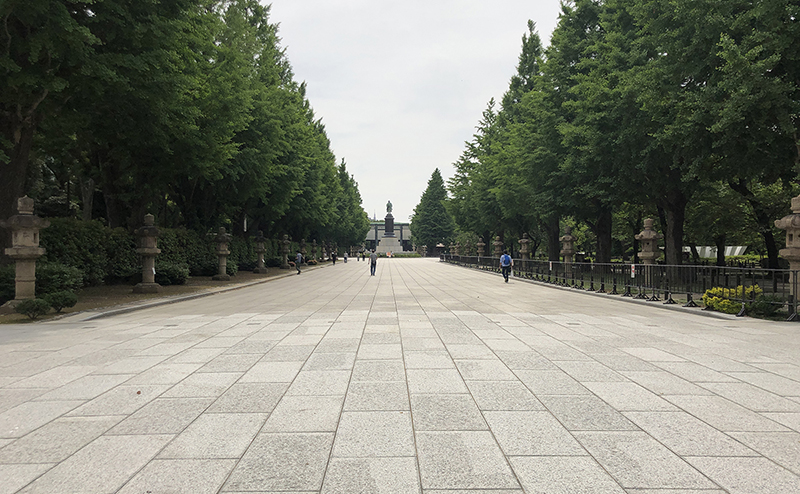
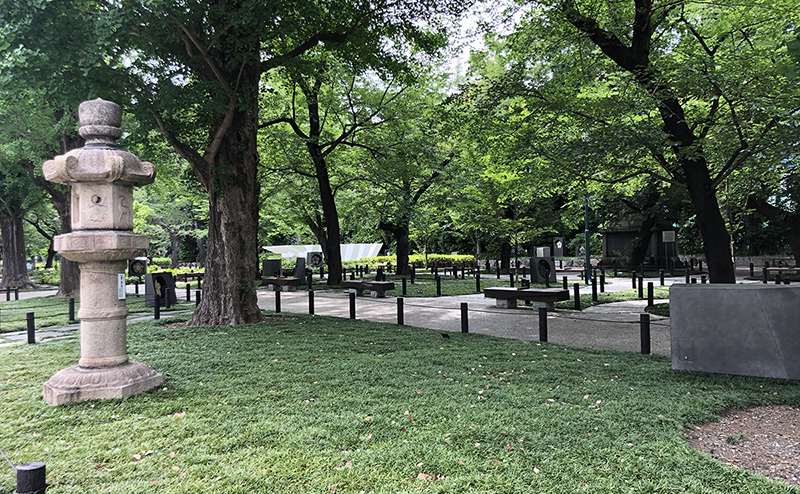
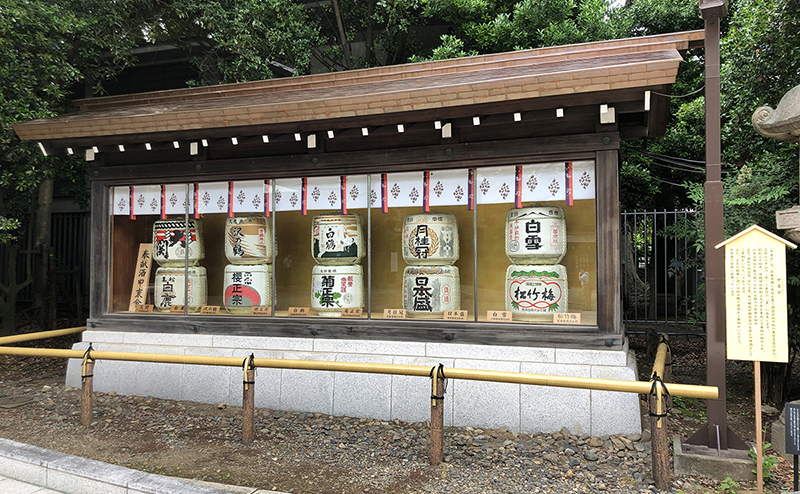
Highlights of Yasukuni Shrine
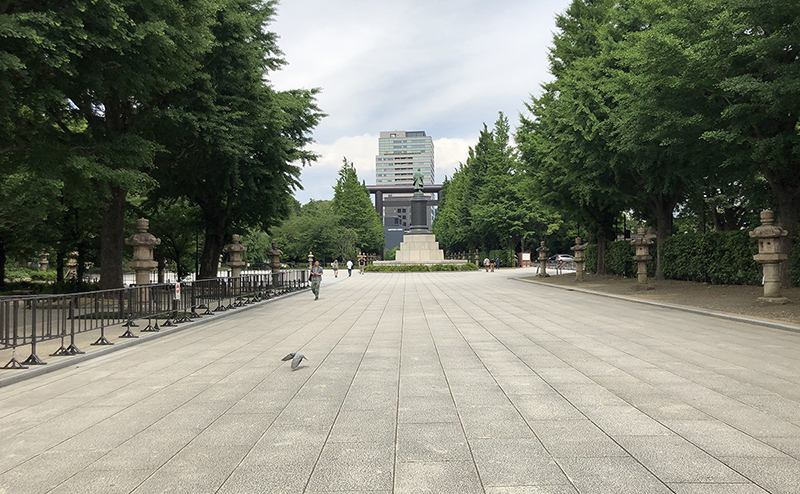
Torii
The Daiichi Torii was built in 1921 as the largest torii in Japan.
It was popularly known as “Sora tsukuyo na otorii,” or “the great torii that goes up to the sky.” However, it was severely damaged by the wind and rain over the years, and was removed in 1943.
The current Daiichi Torii was rebuilt in 1974 and is 25 meters high.
The second torii gate, built in 1887, is the largest bronze torii gate in Japan. It was manufactured at the Osaka Artillery Arsenal.
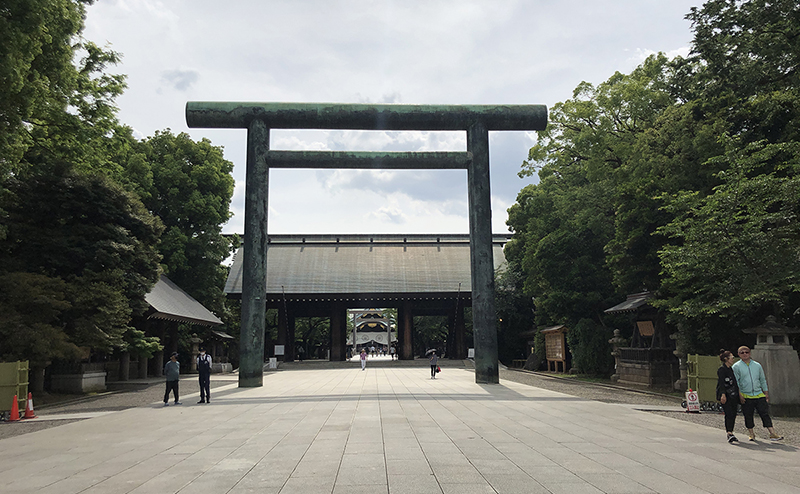
The Shinmon gate
The Shinmon gate was built in 1934 (Showa 9), and the two centr
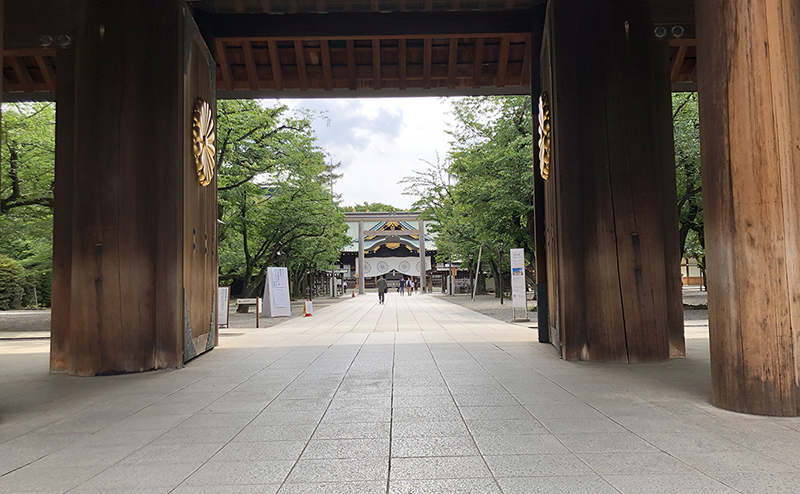
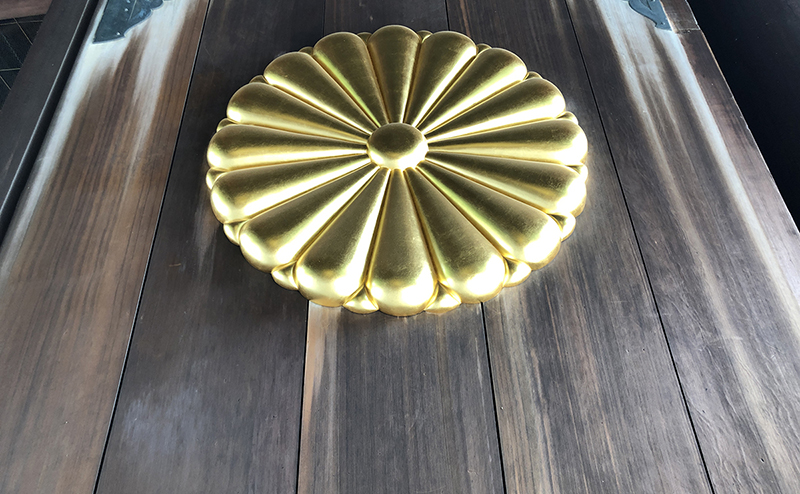
Main Shrine and Worship Hall
The worship hall in the front was built in 1901 and has beautiful curved lines. It is connected to the main hall in the back by a corridor. The main hall, Shinmei-zukuri, has a linear beauty in contrast to the worship hall.

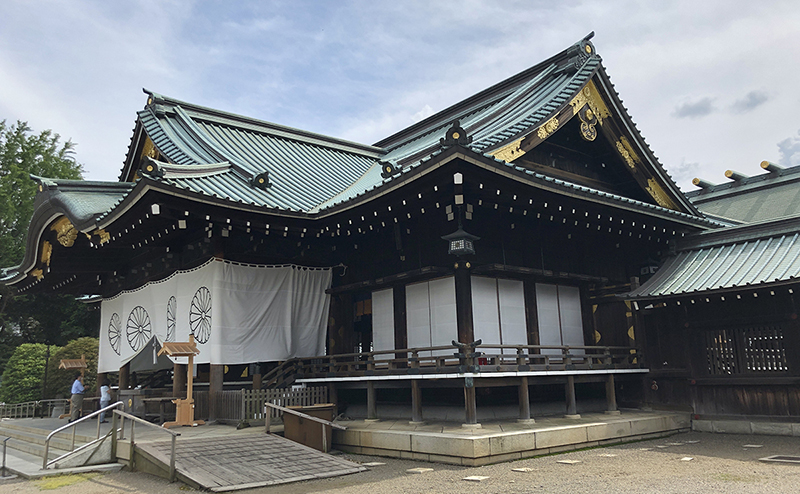
Noh theater
This Noh theater was built in Shiba Park, Tokyo in 1881, and was dedicated and relocated to the Yasukuni Shrine in 1903. On this stage, there are performing arts such as Noh and Japanese dance for the ghosts to see.
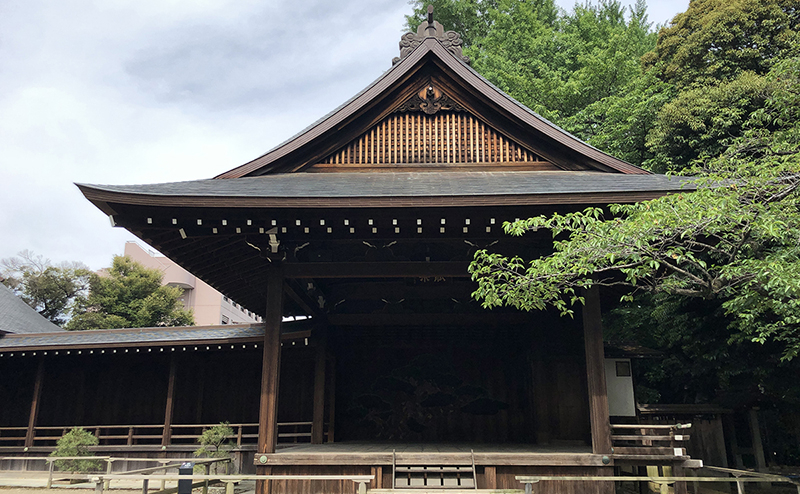
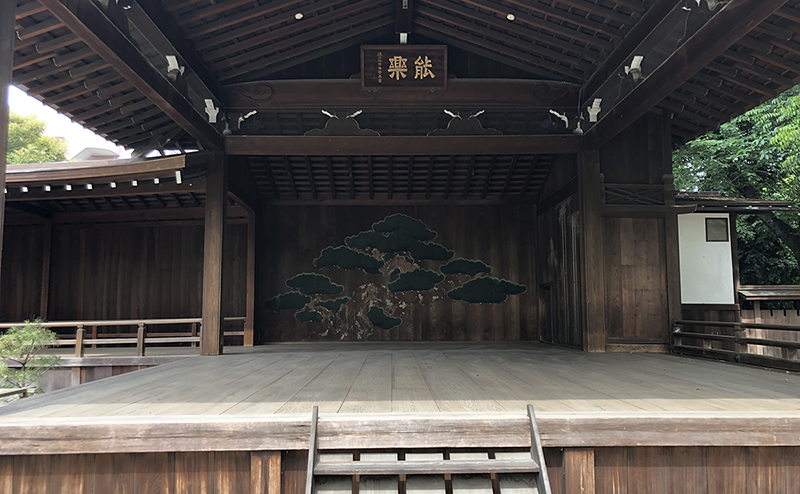
Cherry blossom
The Yasukuni cherry blossoms were also a symbol of pride for the English spirit. It is said that the cherry tree that was first planted started the year after our shrine was founded as a shrine (3rd year of Meiji), and it has been known as a famous place for cherry blossoms since ancient times. There is a sample tree of cherry blossoms in Tokyo designated by the Japan Meteorological Agency, and many worshipers visit especially when it blooms.
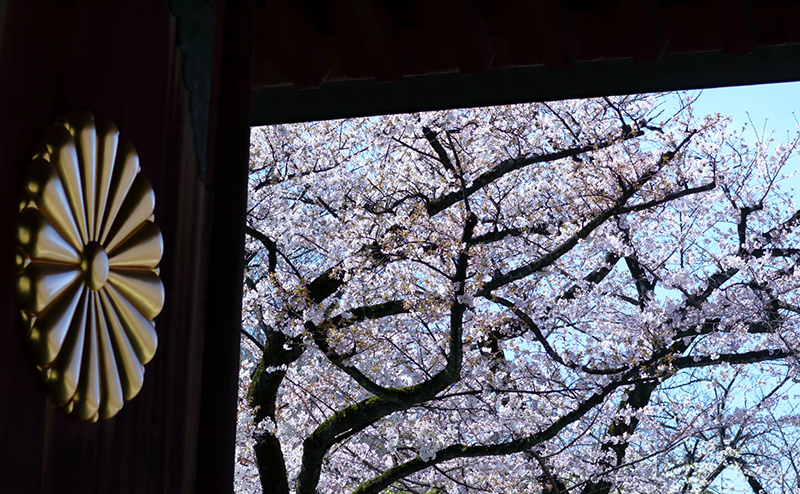
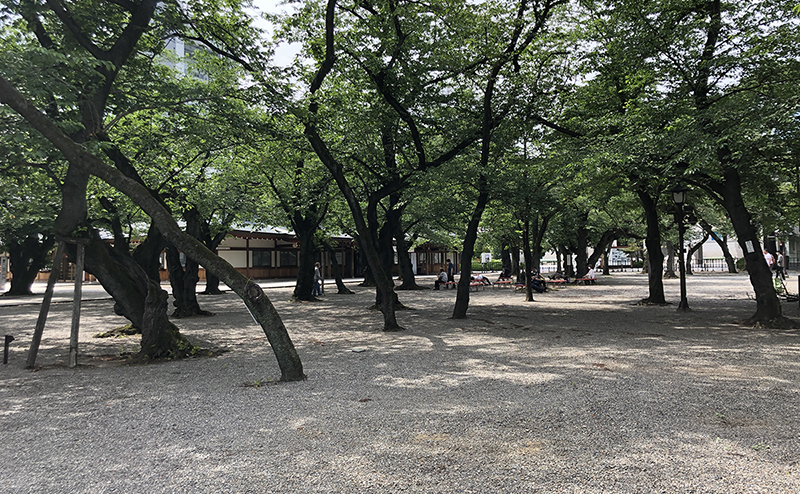
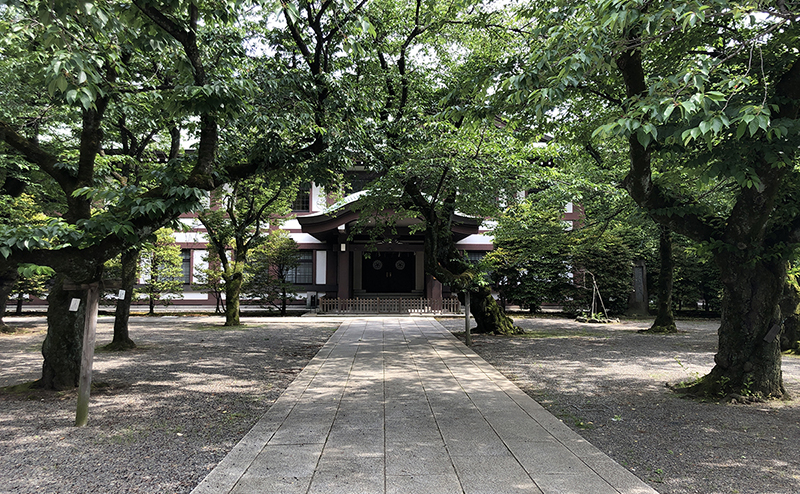

Access to Yasukuni Shrine
Address:3-1-1 Kudankita, Chiyoda 102-8246, Tokyo
TEL: 03-3261-8326
Parking around Yasukuni Shrine
Yasukuni Shrine Official Website
Official site:https://www.yasukuni.or.jp/
